Search
Remove Ads
Advertisement
Search Results
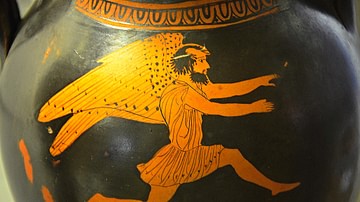
Definition
Hyperborea
In Greek mythology, Hyperborea was the land located to the far north of the known world and it was so remote it was considered even beyond the North Wind. There a legendary race known as the Hyperboreans lived and worshipped the sun god Apollo...
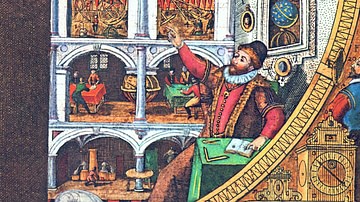
Definition
Tycho Brahe
Tycho Brahe (1546-1601) was a Danish nobleman who made the most significant contribution to our knowledge of astronomy before the telescope arrived. He discovered a supernova, observed the elliptical interplanetary orbit of a comet, updated...
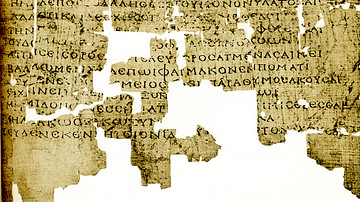
Definition
Callimachus of Cyrene
Callimachus of Cyrene (l. c. 310-c. 240 BCE) was a poet and scholar associated with the Library of Alexandria and best known for his Pinakes ("Tablets"), a bibliographic catalog of Greek literature, his poetry, and his literary aesthetic...
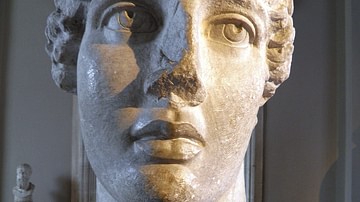
Definition
Lesbos
Lesbos, a Greek island located in the eastern Aegean, had several prosperous city-states which thrived from the Bronze Age to the Byzantine era. Switching many times between independence, Persian and Greek control, Lesbos was often a victim...
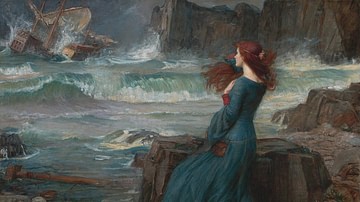
Definition
The Tempest - Shakespeare's Magical Tragicomedy
The Tempest is a play by William Shakespeare (c. 1564-1616), written in 1610 or 1611, and first performed for the court of James I of England (r. 1603-1625) on 2 November 1611. Believed to be the last play that Shakespeare wrote on his own...
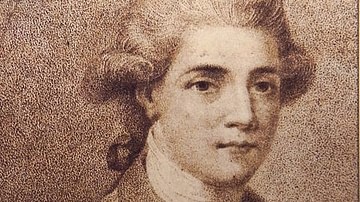
Definition
John André
Major John André (1750-1780) was a British military officer who served in the American Revolutionary War (1775-1783). He is best known for negotiating with the American turncoat Benedict Arnold, who offered to hand over the stronghold of...
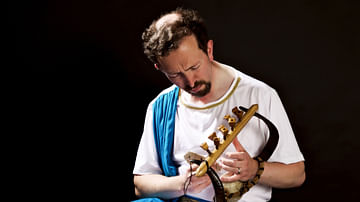
Interview
Interview with Michael Levy
Join World History Encyclopedia as they talk to Michael Levy, a prolific composer of the ancient lyre all about his inspiration and knowledge of the instrument. If you want to hear Michael perform, be sure to check out our video interview...
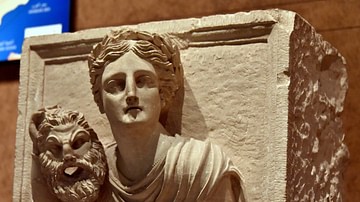
Image
Melpomene from Raqmu-Petra
Melpomene, one of the nine Greek muses and patron of Greek tragedy, holding a mask of Pan or a satyr, instead of the tragic mask usually associated with her. This relief is one of a group of architectural sculptures that were discovered near...
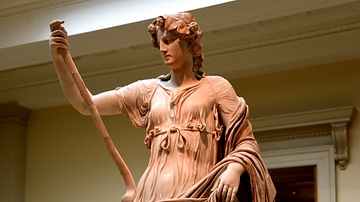
Image
Thalia
In ancient mythology, Thalia was one of the 9 Muses. The Muses were female companions of the god Apollo and devoted to the arts and sciences. Although Thalia was associated with comedy, Roman poets described her as graceful and tender. This...
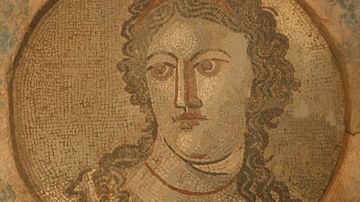
Image
Roman Mosaic of Mnemosyne
A Roman mosaic of the Titan Mnemosyne (Memory), mother of the nine Muses. 2nd century CE, Tarraco. (Archaeological Museum, Tarragona, Spain)